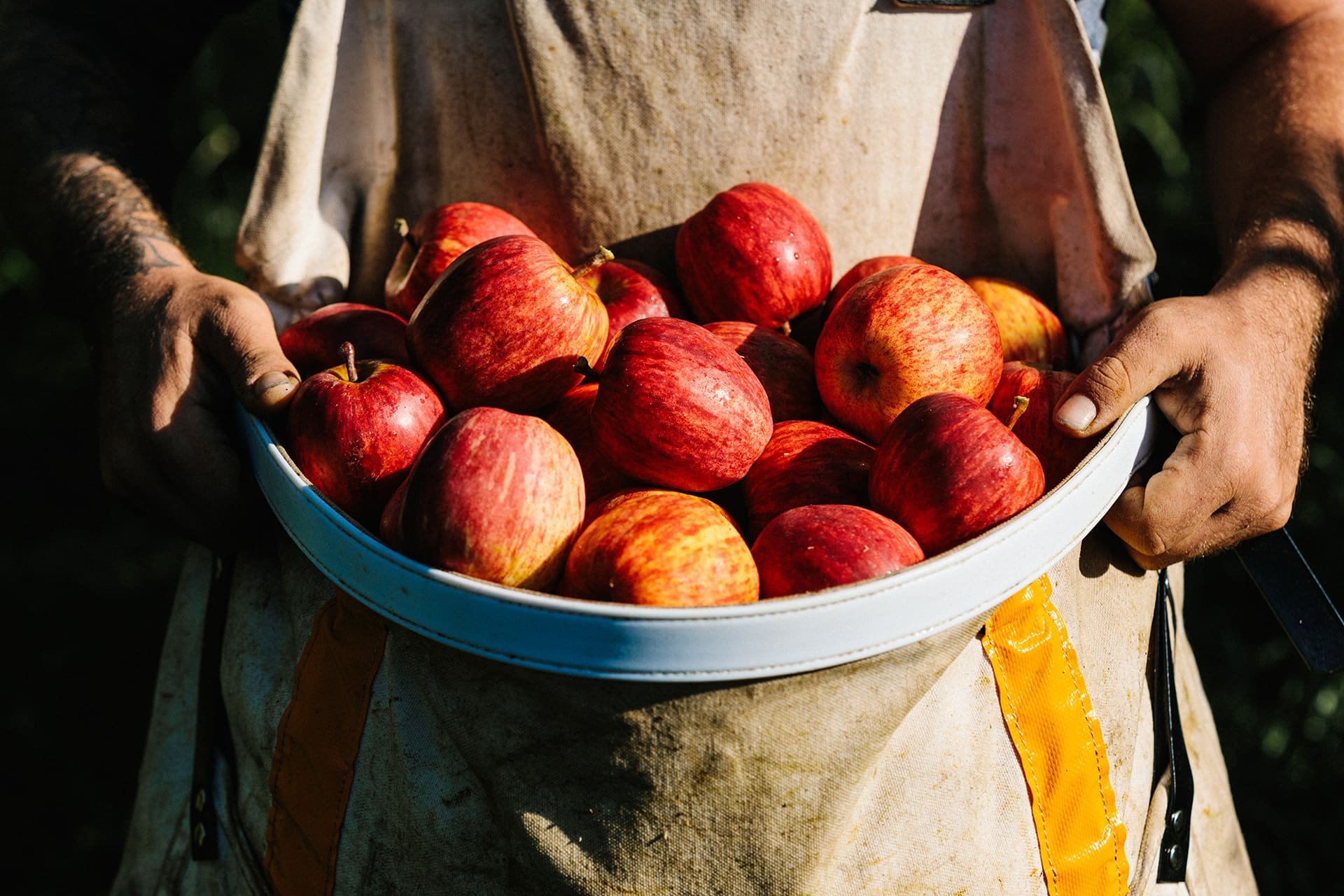
Tasmanian Organic apples
In 1998, two years before the United States Department of Agriculture started a national program (NOP), R&R Smith went organic.
See Our Apple Varieties
People called us radical, too risky, unconventional, eccentric, and any number of other things.
At the time maybe it was all those things but we knew there was zero future in treating the land as a commodity. It had to be our friend.
We also knew Mother Nature did an excellent job of preparing the tastiest, highest nutrition, lowest carbon-footprint fruit so if we just followed her lead we’d be ok.
Our R&R Philosophy
We treat every one Mother Nature’s apples as if it’s the last one we’ll ever grow.
And here’s our secret recipe - sunlight, water, love and a little luck.
What organic means
Organic farming is a holistic approach to farming that views the health of the soil, the plants and the people involved as one continuous system.
In a technical sense, being organic means we’ve complied with a third-party certifier (in our case, the National Association of Sustainable Agriculture Australia, or NASAA) and met their standards for organic certification.
We believe in the key principles of organic agriculture as defined on the NASAA website which includes:
Principle of health
Organic Agriculture should sustain and enhance the health of soil, plant, animal, human and planet as one and indivisible.
Principle of fairness
Organic Agriculture should build on relationships that ensure fairness with regard to the common environment and life opportunities.
Principle of ecology
Organic Agriculture should be based on living ecological systems and cycles, work with them, emulate them and help sustain them
Principle of care
Organic Agriculture should be managed in a precautionary and responsible manner to protect the health and wellbeing of current and future generations and the environment.


